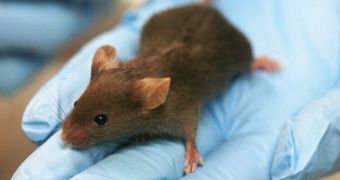According to a paper published in the American Society for Microbiology's journal mBio, it would appear that microbes in the gut may play a role in the emergence and evolution of colorectal cancer. Scientists came to this conclusion after transplanting gut flora from sick to healthy mice.
In the research, gut microbes from mice that suffered from colorectal cancer were transplanted into healthy rodents. After the test period concluded, scientists from the University of Michigan determined that the animals that received the transplant were far more likely to develop tumors.
The work suggests that oncologists and cancer researchers should pay more attention to the composition of the gut microbial flora when calculating patients' risk of developing colorectal cancer. This information could also prove useful in tailoring dedicated therapies for individuals with the disease.
The data “convinced us that it is the community that is driving tumorigenesis. It's not just the microbiome, it's not just the inflammation, it's both,” explains UM expert Patrick Schloss, a coauthor of the new study, quoted by EurekAlert.

 14 DAY TRIAL //
14 DAY TRIAL //